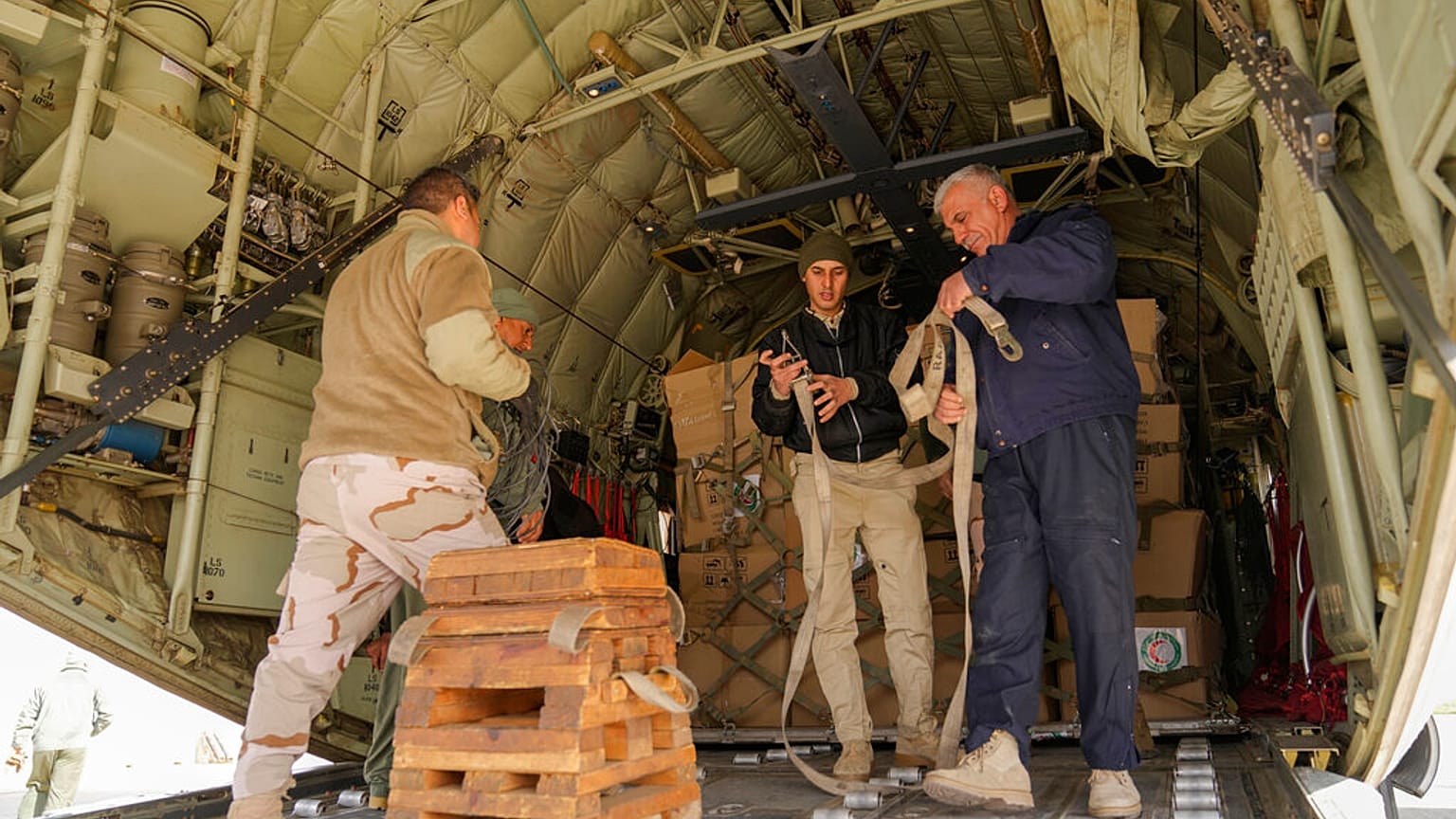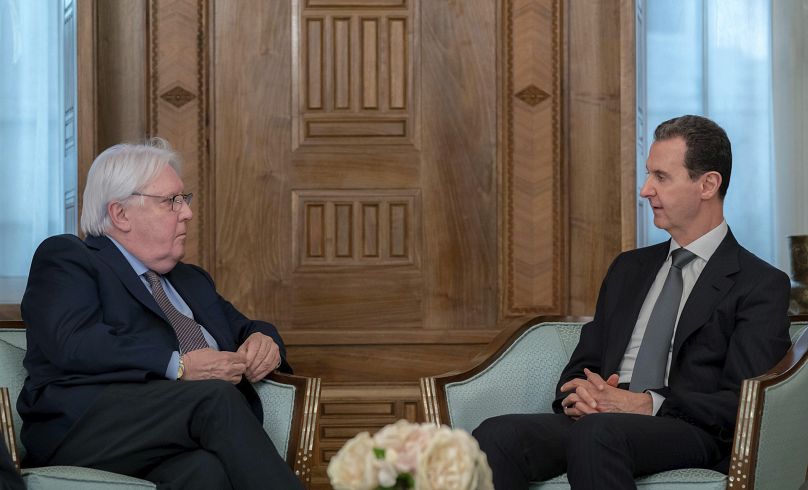Syria’s president has agreed to open two new crossing points from Turkey to the country’s rebel-held northwest to deliver desperately needed aid and equipment to help millions of earthquake victims.
Syria’s president agreed to open two new crossing points from Turkey to the country’s rebel-held northwest to deliver desperately needed aid and equipment to help millions of earthquake victims, the United Nations announced late Monday.
 ADVERTISEMENT
ADVERTISEMENT
 ADVERTISEMENT
ADVERTISEMENT
UN Secretary-General Antonio Guterres welcomed the agreement by Syrian leader Bashar Assad to open crossing points at Bab Al-Salam and Al Raée for an initial period of three months. Currently, the UN has only been allowed to deliver aid to the northwest Idlib area through a single crossing at Bab Al-Hawa, at Syrian ally Russia’s insistence.
The announcement followed a meeting in Damascus earlier Monday between Assad and UN humanitarian chief Martin Griffiths, who spent the weekend viewing the devastation caused by the magnitude 7.8 earthquake that ravaged southern Turkey and northwestern Syria.
Guterres’ official announcement came during a closed meeting of the UN Security Council where diplomats said Griffiths announced Assad’s agreement to open the two new crossings during a virtual briefing.
Syria’s UN ambassador, Bassam Sabbagh, told reporters while the meeting was taking place that Assad held a “positive and constructive meeting” with Griffiths and “confirmed the need for urgent aid to enter all regions in Syria, including those under occupation and under control of the armed terrorist groups.”
Brazil and Switzerland, which oversee Syria's cross-border issues in the council, asked for “quick implementation" of the agreement to open the two new crossings.
“We certainly hope Assad is serious about this," US State Department spokesman Ned Price said. It would be “a good thing for the Syrian people," he said, noting the Syrian regime's previous opposition to additional humanitarian crossings.
The United Nations has been under intense pressure to get more aid and heavy equipment into Syria’s rebel-held northwest since the earthquake struck a week ago, with survivors lacking the means to dig for other survivors and the death toll mounting.
The toll in the northwestern rebel-held region has reached 2,166, according to the rescue group the White Helmets, while the Syrian Health Ministry in Damascus said 1,414 people have died in government-held areas. The overall death toll in Syria stands at 3,580.
UN spokesman Stephane Dujarric cited difficulties due to Syria’s 12-year war.
To criticism that the UN hadn’t responded quickly enough to the quake, he said some aid is getting into the northwest, pointing to 58 trucks that arrived with aid through the Bab Al-Hawa crossing.
But he stressed that the United Nations doesn’t have heavy equipment or search and rescue teams, “so the international community as a whole needs to step up to get that aid where it is needed.”
Guterres said in a statement that with the rising death toll “delivering food, health, nutrition, protection, shelter, winter supplies and other life-saving supplies to all the millions of people affected is of the utmost urgency.”
For more watch Euronews' report in the video above.















